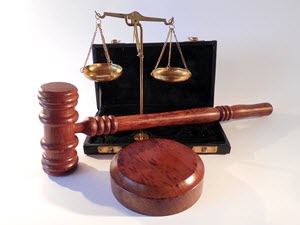Posted in Automobile, Israel F. Piedra, Personal Injury
New Hampshire’s Answer to Punitive Damages
 The term “punitive damages” has entered the mainstream, so most non-lawyers are familiar with the definition: essentially, monetary damages awarded by a jury for the purpose of punishing the defendant for egregious wrongdoing.
The term “punitive damages” has entered the mainstream, so most non-lawyers are familiar with the definition: essentially, monetary damages awarded by a jury for the purpose of punishing the defendant for egregious wrongdoing.
Many people may be surprised to learn that punitive damages are almost never permitted under New Hampshire law. RSA 507:16 is clear: “No punitive damages shall be awarded in any action, unless otherwise provided by statute.” Statutes authorizing punitive damage are scarce and limited in applicability (i.e., RSA 359-D:11 for unauthorized practices by “credit services organizations” and RSA 570-A:11 for violations of wiretapping laws).
However, the doctrine of “enhanced compensatory damages” has been developed in New Hampshire to somewhat replace the role of punitive damages. Enhanced compensatory damages are only awarded when “an act is wanton, malicious, or oppressive.” Stewart v. Bader, 154 N.H. 75, 87 (2006). Typically, such an act would go far beyond mere negligence. However, the simple fact that an action is intentional is not sufficient to warrant enhanced damages. Rather, “there must be ill will, hatred, hostility, or evil motive on the part of the defendant.” Id.
The purpose of “enhanced” damages is to “reflect the aggravating circumstances of an injury,” rather than merely punish the defendant (as is the case with punitive damages). See DCPB, Inc. v. Lebanon, 957 F.2d 913, 915 (1st Cir. 1992). From a practical perspective, that explanation is just a theoretical justification in a state that has a long tradition of frowning upon punitive damages. The end result is the same.
Enhanced damages have mostly been allowed in personal injury actions. In one extreme example, a disgruntled wife shot her husband in the face with a revolver. Aubert v. Aubert, 129 N.H. 422, 426 (1987). The Supreme Court determined that enhanced compensatory damages were appropriate. Enhanced damages may also be available where the injury was caused by unintentional/accidental conduct. McKinnon v. Harris, 2005 U.S. Dist. LEXIS 21095 (D.N.H. 2005).
There is an ongoing debate in New Hampshire about whether car accidents caused by drunk drivers warrant an award of enhanced compensatory damages. The New Hampshire Supreme Court has stated that injuries caused by drunk drivers do not justify enhanced damages. Gelinas v. Mackey, 123 N.H. 690 (1983). However, some trial court decisions in New Hampshire have since reached the contrary conclusion, noting that New Hampshire’s stance is at odds with almost every other state in the country. See, e.g., Hanscom v. O’Connell, 2003 N.H. Super. LEXIS 3 (N.H. Super. Nov. 7, 2003). Various commentators have likewise called for a reversal of the New Hampshire Supreme Court’s position on this matter. See, e.g., Jason Major, Enhanced Compensatory Damages in Drunk Driving Cases – It’s Time to Overturn Gelinas v. Mackey, N.H.B.J., Winter 2008, at 24. Some Superior Court judges have distinguished the Gelinas case and allowed enhanced compensatory damages where the defendant (allegedly) drove drunk AND acted recklessly in some other way (i.e., using their phone or driving at a high rate of speed). See Langlois v. Dellinger, 215-2015-CV-00043 (Feb. 4, 2016) (Vaughan, J.); Salisbury v. Garlock, No. 218-2013-CV-1199 (Feb. 6, 2014) (Wageling, J.).
In sum, while punitive damages are ostensibly not permitted in New Hampshire, the doctrine of enhanced compensatory damages has somewhat filled that void. However, it is rare for enhanced damages to be appropriate in a particular case. As stated above, mere negligence does not warrant an award of enhanced damages.
If you have a personal injury matter you would like to discuss with the experienced attorneys at Welts, White & Fontaine, PC, please call us at (603) 883-0797 or contact us here. We can help you evaluate whether you have a viable claim, and have the tools and knowledge necessary to obtain a favorable settlement or verdict. We handle most personal injury matters on a contingency fee basis. We are happy to offer you a free consultation.
Author: Israel F. Piedra
This blog is intended for informational use only. The information contained herein should not be construed as offering legal advice or a legal opinion or forming an attorney-client relationship.
